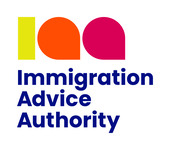The UK Self-Sponsorship Visa allows entrepreneurs to establish a UK company and sponsor themselves for a Skilled Worker visa.
Key takeaways
- UK Self-sponsorship visa is not a separate visa. It is the Skilled Worker route, but in this case your UK company (holding a sponsor licence) assigns you a Certificate of Sponsorship for an eligible role.
- It is ideal for experienced professionals, founders and senior hires who can create or acquire a UK business with a real vacancy at RQF 6 (graduate level) and pay the required salary of at least £41,700
- You need compliant key personnel: At least one Level 1 user must be an employee (and generally a settled worker) to run the licence.
- Process takes 12-16 weeks from company formation to visa approval
- Provides a pathway to permanent residence after 5 years of continuous residence
- Ideal for business owners who don’t qualify for Innovator Founder visa requirements
Unsure if you qualify? Get a quick expert assessment.

What is the UK Self-Sponsorship Visa?
UK Self-Sponsorship Visa is a strategic route for entrepreneurs and business owners where you set up or acquire a UK company, apply for a Skilled Worker sponsor licence, and then sponsor yourself into a qualifying role within that company. The visa itself is the Skilled Worker visa.
Read our deep-dives:
How UK Self-Sponsorship Visa works?
The process follows these key steps:
- Company Formation: Establish a UK limited company with proper business structure
- Sponsor Licence: Your company applies for and obtains a Worker sponsor licence
- Certificate of Sponsorship: The company assigns a Certificate of Sponsorship (CoS) to you for a genuine role
- Visa Application: You apply for a Skilled Worker visa based on this sponsorship
This route offers significant advantages for entrepreneurs whose business models may not meet the innovation requirements of the Innovator Founder visa, providing stability and flexibility through the established Skilled Worker route.
Is Self-Sponsorship Still Possible?
Who is the UK Self-Sponsorship Visa for (and not for}?
Great fit if you:
- Can demonstrate a genuine, RQF 6-level role your UK business truly needs (e.g., Director of Engineering, Head of Product, CFO).
- Can meet the salary and English requirements and pass background checks.
Not ideal if you:
- Only plan a paper company with no trading plan, revenue model, or independent governance.
- Can’t appoint compliant key personnel to manage the sponsor licence
Eligibility & Requirements for UK Self-Sponsorship Visa
Business requirements
- Establish a genuine UK limited company with legitimate business activities
- Demonstrate sufficient funds to operate the business (typically £25,000+ depending on business scope)
- Secure appropriate business premises with a valid lease or ownership agreement
- Obtain necessary business insurance and regulatory approvals
- Create a comprehensive business plan showing viability and growth potential
Learn more:
For the individual (Skilled Worker)
- Eligible role at RQF 6 (unless on LIS/TSL under current rules).
- Salary: £41,700 or going rate (higher applies). LIS roles may qualify at 80% of the route’s usual minimum.
- English: B1 CEFR.
- Funds/IHS/fees: ability to pay IHS £1,035/yr and application fees (range by length & LIS).
- Genuine vacancy: role appropriate for the business model & scale; not created mainly for immigration.
Get specialist advice for your UK Self-Sponsorship Visa
Contact us today to schedule your initial consultation. Call us now on +44(0)2034799979 or email: info@ukvisagateway.com
UK Self-Sponsorhip Visa Application Process & Timeline
The self-sponsorship process involves multiple stages that must be completed in sequence:
- Viability strategy (with us). Confirm role, SOC code, salary and whether LIS/TSL applies.
- Set up or acquire the UK company. Governance, UK bank, payroll, insurance, premises.
- Sponsor licence application (Home Office). Standard decisions often < 8 weeks; priority can be 10 working days when available. Appoint mandatory key personnel:
- Authorising Officer: Senior person with overall responsibility for the sponsor licence
- Key contact: Day-to-day liaison with the Home Office
- Level 1 User: Manages the Sponsor Management System (SMS)
- Compliance readiness. HR files, Appendix D records, key personnel.
- Assign Defined/Undefined Certificate of Sponsorship through the SMS system.
- Skilled Worker application (UK or overseas) → biometrics/eVisa. IHS & fees payable.
Arrive/start in the UK. Report to SMS, maintain records. Extensions & settlement. After 5 years, you can usually apply for ILR if salary/continuity rules are met.
Planning ahead: Indefinite Leave to Remain after Skilled Worker
UK Self-Sponsorship Visa Fees & Overall Costs
Applicants must pay the application fee and IHS fee where applicable. Additional costs may include priority service fees
- Home Office visa fee (Skilled Worker): varies by length and whether your code is on the LIS. Gov.uk shows the current ranges.
- Immigration Health Surcharge: usually £1,035 per adult of leave (reduced rate for children)
- Company costs: Companies House, insurance, payroll, HR systems, accounting.
Learn more:
Genuine vacancy and compliance obligations for UK Self-Sponsorship Visa?
The Home Office defines a genuine vacancy as one that requires the stated duties, fits the route and is appropriate to the business model & scale — not a sham or created primarily to enable a visa. Expect scrutiny of duties vs. SOC code, workload, revenue, and how salary will be sustainably paid.
Creating a Legitimate Role
- Business necessity: Demonstrate why the role is essential for your company’s operations
- Detailed job description: Create comprehensive role specifications with clear responsibilities
- Market rate compensation: Offer salary that reflects genuine market rates for the position
- Organizational fit: Show how the role integrates with your business structure and goals
Compliance Obligations
As both sponsor and sponsored worker, you have dual responsibilities:
Sponsor Duties:
- Maintain accurate employment records and right-to-work documentation
- Report changes to the Home Office within specified timeframes
- Cooperate with compliance visits and inspections
- Ensure business remains active and trading
- Renew sponsor licence annually
Sponsored Worker Obligations:
- Work only in the role described in your Certificate of Sponsorship
- Report changes in personal circumstances promptly
- Maintain continuous residence requirements
- Not claim public funds during visa validity period
Learn more:
- Genuine Vacancy Test for UK Self-Sponsorship Visa
Get in touch today for a quick expert assessment.
Pathway to Permanent Residence
Alterative routes comparison
Understanding how self-sponsorship compares to other UK business visa options:
UK Self-Sponsorship Visa vs. Innovator Founder Visa
- Innovation requirement: Self-sponsorship doesn’t require innovative business concepts
- Endorsement process: No need for endorsing body approval
- Investment levels: More flexible investment requirements
- Business restrictions: Greater freedom in business type and structure
UK Self-Sponsorship vs. Global Talent Visa
- Recognition requirement: No need for exceptional talent recognition
- Sponsorship dependency: Requires ongoing business sponsorship
- Pathway certainty: Clear route to settlement through established framework
- Flexibility: Can change business focus while maintaining visa status
Read our article Self-Sponsorship vs Innovator Founder Visa: Which is Better?
How we can help
Gateway Immigration Services can help you navigate the UK Self-Sponsorship Visa application process smoothly and efficiently. Our experienced team will ensure your application meets all the necessary requirements, maximizing your chances of success.
- Eligibility mapping – we review your situation and model role, SOC code, RQF 6, salary vs. going rate
- Sponsor licence build-out – Key personnel, Appendix A documents, HR & Appendix D templates.
- Submission strategy – CoS narrative, genuineness evidence, compliance pack
- End-to-end – licence application → CoS → Skilled Worker visa → ILR pathway
Ready to start your UK Self-Sponsorship Visa journey?
Book a confidential consultation with our UK immigration experts today
Frequently Asked Questions (FAQs)
Is self-sponsorship allowed?
Yes — if your UK company is licensed and the role meets Skilled Worker rules. There’s no separate visa called “self-sponsorship”
What RQF level is required in 2025?
For new Skilled Worker applicants, roles are normally RQF 6 (graduate level) from 22 July 2025, with limited exceptions (LIS/TSL and transitional cases).
What salary do I need?
Usually at least £41,700 or the going rate for the code — whichever is higher. Roles on the Immigration Salary List qualify at 80% of the usual minimum
Do I need to advertise the job?
No formal RLMT. But the Home Office still tests for a genuine vacancy.
How long does the sponsor licence take?
Standard decisions are often under 8 weeks; priority requests (limited slots) aim for 10 working days.
What English level is needed?
B1 CEFR (reading, writing, speaking, listening).
Can I settle in the UK?
The Skilled Worker route leads to ILR after 5 years if requirements are met.
Author

Tochi Okoronkwo
Tochi is an IAA certified immigration adviser with expert knowledge of UK Immigration Law and a genuine desire to make your immigration journey as smooth and stress-free as possible.


